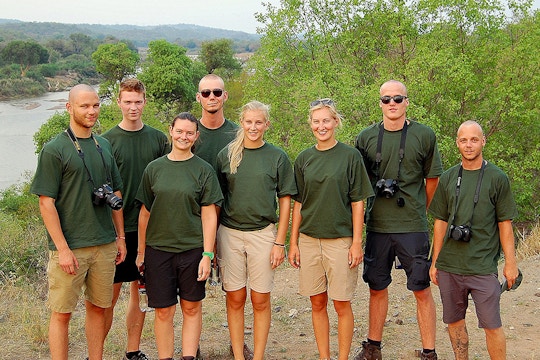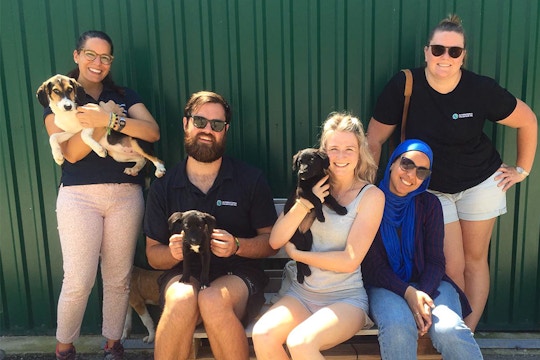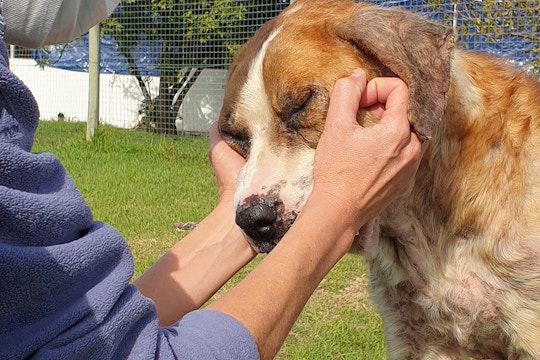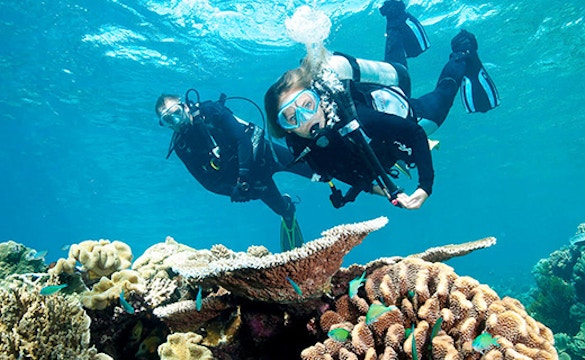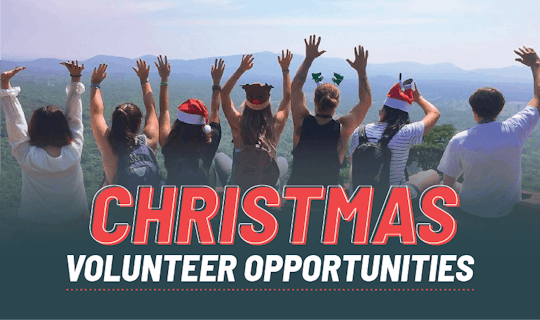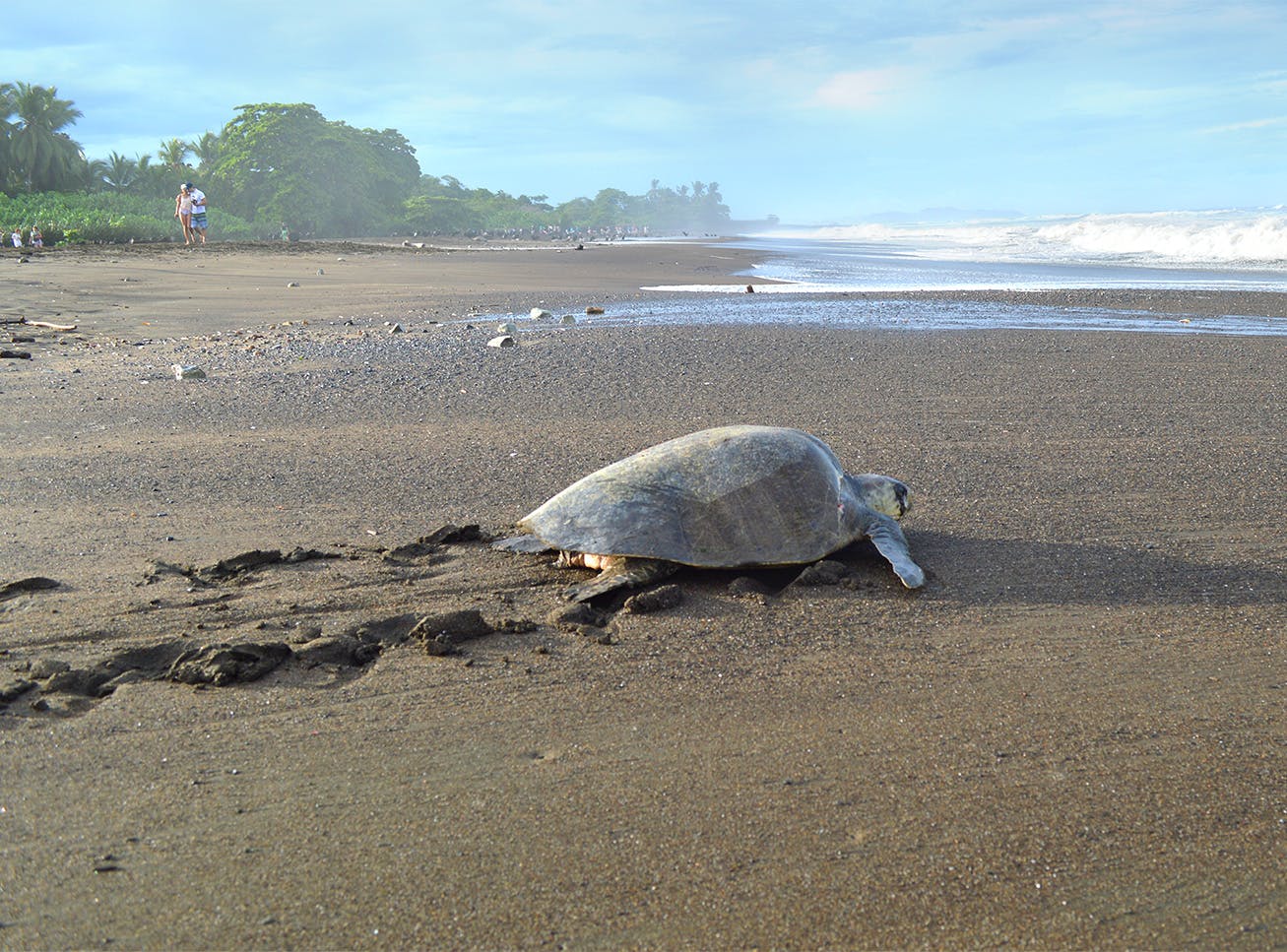
Turtle Conservation Volunteer Project - Costa Rica
Eager to do Turtle Conservation volunteering in Costa Rica? International Volunteer HQ’s Turtle Conservation project is an exciting opportunity for volunteers to support the survival of these magnificent and endangered creatures. Volunteers will gain skills and experience related to sea turtle and marine conservation while based on either the stunning Nicoya Peninsula or on the Caribbean Coast where the turtles come ashore during nesting season.
Highlights:
- Programs start every Monday
- Affordable fees from $905 for 2 weeks
- Includes accommodation, meals, airport pick up, orientation and 24/7 support
-
Protect endangered sea turtles and their nesting grounds
-
Explore Costa Rica’s stunning natural environment
-
Stay with other volunteers near the beach or together in a homestay
Key information
This program is ideal for:
What to expect and how you'll make an impact
Turtles are truly extraordinary creatures and beloved all over the world, but the reality is that many species are critically endangered. Costa Rica is home to several types of protected turtle, including the Leatherback, Green, Olive Ridley and Hawksbill. While these turtles produce thousands of hatchlings, only a few reach adulthood. IVHQ’s Turtle Conservation project aims to support and protect living turtles and help more hatchlings survive in order to boost the turtle population and make sure they thrive for many years to come.
As a Turtle Conservation volunteer you will assist the local team with a range of tasks that contribute to the protection and survival of the turtles. You will likely work a combination of day and night shifts, and tasks will vary depending on the time of year. Your activities might include:
- Beach patrols
- Building hatcheries to protect eggs from predators
- Locating nesting female turtles and monitoring behaviour
- Collecting turtle eggs for protection measures
- Counting and tagging sea turtles
- Replanting mangroves
- Beach clean-ups
Conservation efforts wouldn’t be possible without the community around them, this is why volunteers also play a key role in supporting initiatives benefitting the community where projects operate. In addition to turtle-related tasks, volunteers can also expect to:
- Run informal English lessons for host families, local children and patrol guides
- Join light construction and beautification activities at local school and community centers
- Assist at local school’s nutrition center
It is also important to note that the work is fairly physical and the volunteer schedule is 5 to 6 days a week for 4 to 7 hours per day. Volunteers also need to be comfortable with walking up to 4 hours at night doing night patrols.
Why do Turtle Conservation volunteering in Costa Rica with IVHQ?
When you volunteer with turtles in Costa Rica you’ll be adding value to the local community, while also developing personally and professionally by:
- Helping to protect and increase the sea turtle population
- Living near remote beaches in Costa Rica
- Practicing your Spanish
- Learning about sea turtle care
- Gaining marine conservation experience
- Immersing yourself fully in the Costa Rican culture
- Getting off the beaten track & exploring rural Costa Rica
Volunteer requirements
- Volunteers under the age of 18 must be accompanied by a parent or guardian to participate in this program, and may be asked to provide additional documentation to the local team.
- All volunteers are required to speak fluent English, have adequate volunteer travel insurance and provide a criminal background check to IVHQ before departure.
Are you eligible to volunteer?
Submit a free application so we can confirm your eligibility and check availability for your preferred dates.
Apply For FreeNot sure which program to join?
Costa Rica photo gallery
































































Academic course credit
Gain course credit from your college or university and meet your academic requirements when completing a volunteer abroad program with International Volunteer HQ!
Learn about course creditRead reviews from Turtle Conservation volunteers in Costa Rica
”As a first-time solo traveler and volunteer, I would say to anyone who asked me to 100% go on a volunteering trip and experience it, especially if they find themselves in a time of doubt when thinking of what step to take next in life. When I applied to the program, I had no idea what I wanted to do with my life, so I decided to take a gap year and experienc...” read more
Read reviews from Turtle Conservation volunteers in Costa Rica

Location
There are a few locations for IVHQs Turtle Conservation volunteer project along the Nicoya Peninsula and the Caribbean Coast. Despite being on opposite sides of the country, these beautiful places both boast fantastic opportunities to get off the beaten track, see rare wildlife, enjoy breathtaking natural scenery and discover Costa Rica’s incredible coastlines.
The Nicoya Peninsula also has some of Costa Rica’s best surf beaches, while the Caribbean Coast offers the unique chance to volunteer in a place so untouched that it only bears the faintest traces of human development.
Arrival and orientation
After you have registered for the program, please book your flights to arrive at Juan Santamaria International Airport (SJO) in San Jose on the Sunday before your start date. When you arrive, you will be greeted at the airport by a member of the local team and taken to the volunteer accommodation in San Jose where you’ll spend a couple of nights. This is included in your Program Fee.
Turtle Conservation project volunteers stay in San Jose until Tuesday morning when they take a bus to their placement; this is included in the Program Fee (as is your return at the conclusion of the program).
If you are traveling in Costa Rica prior to your program, a local pick-up can be arranged or you can meet the local team in San Jose on the Sunday before your program starts.
Orientation covers everything you need to know for your volunteer program in Costa Rica – an introduction to Costa Rica, its customs, language training details, rules and expectations, safety, travel opportunities in Costa Rica, and an introduction to your project and placement. The orientation will also give you a chance to meet other volunteers and swap contact details for weekend travel and socializing. You’ll also have a mini-orientation when you arrive at your placement.
Volunteer schedule example
Weekdays
Please note, schedules can vary as projects take place in either the morning, afternoon or evening so volunteers should be flexible. A typical volunteer schedule might look like this:
| 7:00 - 8:30 AM: | Breakfast at the volunteer house or homestay. |
| 9:00 - 11:00 AM: | Join the local staff and receive a duty roster and plan for work. Some tasks may include, but are not limited to: Hatchery cleaning, painting and repairing the hatchery, measuring temperatures of nests. |
| 12:00 - 3:00 PM: | Lunch and free time. |
| 3:00 - 5:00 PM: | Resume placement work. Tasks can include but are not limited to: beach cleanup, maintaining a clean area for nesting turtles, collecting data and planting native trees along the beach, measuring erosion on the shoreline, maintenance and upkeep of plants/trees/mangroves. Community work tasks may also include English lessons and beautification projects. |
| 6:00 - 7:00 PM: | Dinner |
| 7:00 - 11:00 PM or 11:00 PM - 3:00 AM: | Night patrols. Patrolling the beach to spot nesting turtles, tag turtles, count eggs in nests. |
Weekends
Weekends on the Turtle Conservation project can be spent discovering the wonders of the natural environments of Costa Rica. While you won’t find many shops, restaurants or tourist attractions at the placement locations, there is still plenty to explore, see and do as well as boundless opportunities to relax and recharge.
On the Nicoya Peninsula you’ll find wildlife reserves, secluded surfing spots, palm-lined beaches, yoga classes and wellness resorts, while on the Caribbean Coast you can enjoy a spot of sportfishing and tour canals where you might glimpse toucans, monkeys, sloths, crocodiles and other exotic animals.
Accommodation and WiFi
On the Turtle Conservation project volunteers can expect either at a dormitory-style volunteer house or a local homestay near the Turtle Conservation project site. Typically the rooms are made up of single beds and bunk beds. Both types of accommodation have basic amenities where you will be sharing a room with up to 8 other volunteers of the same gender. However, we do have one conservation site that has mixed gender dorm rooms. Washrooms are shared by all volunteers, and have flush toilets and cold water showers. You will need to bring your own towel and toiletries, but bed linen will be provided.
Volunteers can expect to be in small, remote villages 6 - 9 hours outside of San Jose along the Nicoya Peninsula or Caribbean Coast. Some of these villages are surrounded by dense jungle and dirt roads. This can sometimes result in added dirt/dust in the accommodation which the host family will do their best to keep clean. Due to the tropical environment you can also expect a variety of critters (insects, spiders, etc.) to be present.
WiFi is unavailable at the Turtle Conservation site, so we recommend purchasing a local SIM card for an unlocked mobile phone during your program orientation in San José if you want to keep connected.
Meals
Volunteers on the Turtle Conservation project are served three meals a day. These will be mainly Costa Rican style dishes and light vegetarian meals like:
- Rice, beans, plantains fresh fruit and vegetables
- Gallo Pinto - rice and beans that are pre-cooked and then fried together with other ingredients, typically vegetables
Breakfast can include fresh fruit, toast, and eggs. Tea, coffee, and toast will be available throughout the day. Purified drinking water is also available in the volunteer house; we do not recommend that you drink the tap water.
If you have special dietary requirements, please let us when you apply so that we can make arrangements for you. However, you should not expect to eat as you normally do at home and need to be as flexible as possible. We will do our best to see that you are well taken care of.














Pricing
Duration |
Program FeeDue 30 days before you start, or within 48 hours if you register inside of 30 days. Covers the cost of hosting you.
|
|---|---|
| 2 weeks | $905 Equivalent to $65/day |
| 3 weeks | $1,270 Equivalent to $60/day |
| 4 weeks | $1,600 Equivalent to $57/day |
| 5 weeks | $1,890 Equivalent to $54/day |
| 6 weeks | $2,180 Equivalent to $52/day |
| 8 weeks | $2,760 Equivalent to $49/day |
| 10 weeks | $3,340 Equivalent to $48/day |
| 12 weeks | $3,920 Equivalent to $47/day |
| 16 weeks | $5,080 Equivalent to $45/day |
| 20 weeks | $6,240 Equivalent to $45/day |
| 24 weeks | $7,400 Equivalent to $44/day |
- Accommodation
- Meals
- 24/7 in-country support
- In-country program orientation
- Pre-departure support from your Program Manager
- Airport pick-up
- Personalized preparation tools, guides and check lists
- Access to IVHQ’s preferred insurance and flights partners
- Discounts on language lessons
- Discounts on travel and tour add-ons
- Certificate of International Volunteer Service
Learn more about what's included in your IVHQ Registration Fee and Program Fee.
- All programs attract a Registration Fee of US$329 (approximately $329) in addition to the Program Fee. This covers all pre-departure support services.
- A 5% international banking fee is added at point of payment.
- Additional things to budget for include: Visa, flights, travel insurance (mandatory), vaccinations, criminal background check, public transportation to and from your placement each day and return to the airport when your program finishes.
- Recommended spending money: Volunteers in Costa Rica generally find US$150 - US$200 per week to be sufficient for expenses. For Turtle Conservation and Eco-Agriculture projects, volunteers can bring less spending money as the location is remote and all meals will be provided.
Free-time experiences & tours in Costa Rica
Take your volunteer experience to the next level with IVHQ's affordable activity and tour add-ons in Costa Rica! Explore your options below and learn how to book them once you've been accepted onto the IVHQ Costa Rica program.
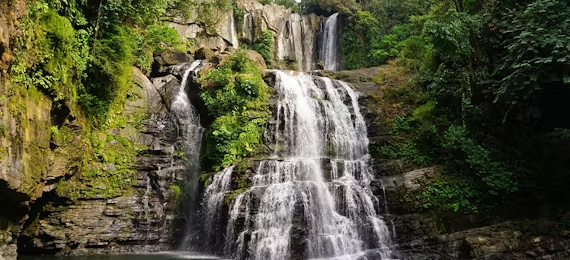
Immerse yourself in Manuel Antonio’s stunning natural beauty and thrilling activities on this 6-day adventure
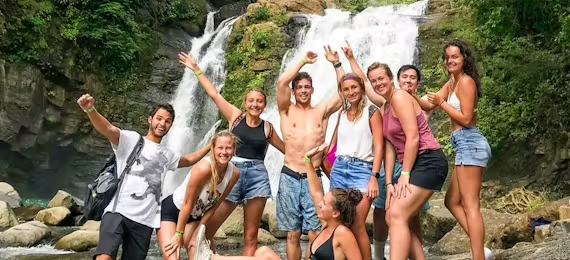
Embark on a full-day adventure exploring La Paz Waterfall Gardens, an animal sanctuary, and a Poas Volcano Tour, followrd by a Coffee Farm experience.
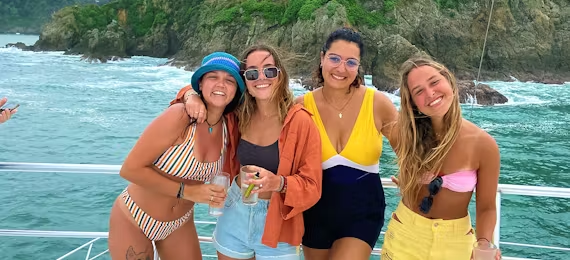
Experience a comprehensive 6-day Mini Adventure, featuring Arenal Volcano, the Britt Coffee Tour, La Paz Waterfall Gardens, whitewater rafting, and a visit to the pristine Tortuga Island.

Immerse yourself in Manuel Antonio’s stunning natural beauty and thrilling activities on this 6-day adventure

Embark on a full-day adventure exploring La Paz Waterfall Gardens, an animal sanctuary, and a Poas Volcano Tour, followrd by a Coffee Farm experience.

Experience an adrenaline-filled journey through Costa Rica’s lush rainforest on a heart-pounding canopy tour, featuring the “Tarzan Swing,” “Superman Cable,” and the “Elevator,” xperience an exhilarating journey through Costa Rica’s lush rainforest on a heart-pounding canopy tour, featuring the “Tarzan Swing,” “Superman Cable,” and the “Elevator”.
Spanish language lessons
Fluency in Spanish is not a prerequisite for the IVHQ Costa Rica program, however, learning basic conversational Spanish will help you maximize the benefit of your program. The language lessons are tailored to each volunteer’s current level of Spanish and classes run from Monday through to Friday. The cost is very affordable and offered exclusively to IVHQ volunteers. Please note these lessons are not available on the Holiday Experience, Eco-Agriculture or Turtle Conservation projects.
San Jose Language Lessons:
- 2-hour Small Group Classes: $145 (approximately $145) per week
- 1-hour Private Classes: $225 (approximately $225) per week
- 2-hour Private Classes: $455 (approximately $455) per week
Check what's required to visit Costa Rica

Safety and support
IVHQ follows best practice and industry-leading health and safety procedures, which are regularly reviewed and optimized as part of the B Corporation recertification.
- All volunteers encouraged to complete our interactive pre-departure training.
- All local teams trained on best practice volunteer management & First Aid.
- All IVHQ programs are required to adhere to IVHQ's Risk Management Policy.
- All volunteers have access to 24/7 in-country support from our local team.
Essential country information
| Capital | San Jose |
| Population | 5 million |
| Languages | Spanish |
| Currency | Costa Rican Colón (CRC) |
| Time zone | UTC−06:00 |
Weather and climate: Costa Rica is unequivocally a tropical country. Although you get much cooler temperatures in the mountains, the average annual temperature for most of the country lies between 71°F (21.7°C) and 81°F (27°C). The coolest months are from November through to January, and the warmest months are from March through to May. San Jose stands at approximately 1170 meters altitude and has a mean annual temperature of 69°F (20.6°C).
Latest blog posts
Other projects you may be interested in


